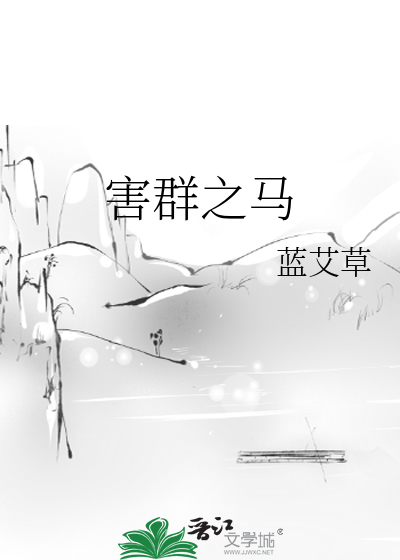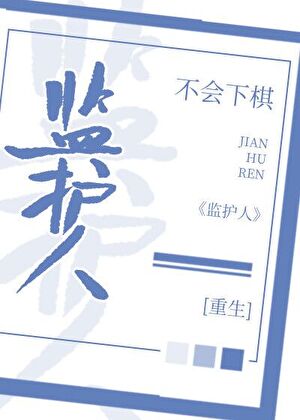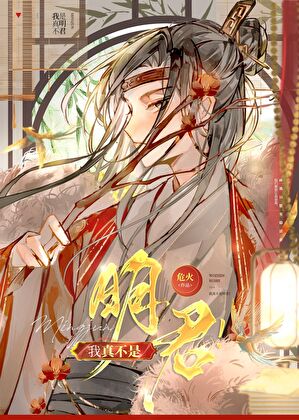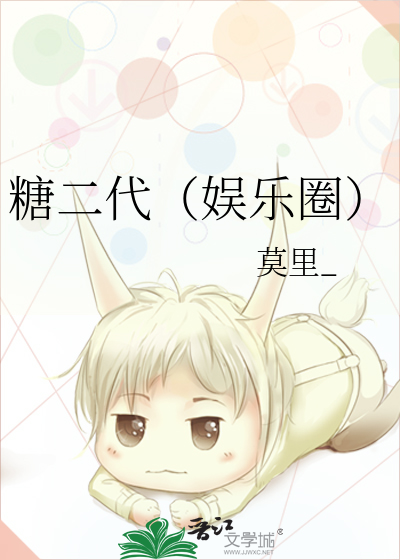Early January marked the coldest stretch of winter.
Even in the relatively warmer regions south of the Great Wall, snow fell, melted, and fell again, leaving a thin layer covering the dirt path leading into the village.
Yan Xue walked through the village entrance with a basket strapped to her back, the smoke of cooking fires already rising from many households.
Yan Family Village wasn’t large—fewer than two hundred families lived there. Without a supply and marketing cooperative, villagers had to travel to nearby villages for the biweekly market to buy goods or sell surplus farm produce.
Today’s market in Dazhao Village was farther than usual, a round trip of over thirty li, so she’d inevitably been delayed.
Yan Xue stamped the snow off her shoes at the gate before stepping into the courtyard, only to see a figure dart out of the house like a startled monkey.
The Yan family’s courtyard wasn’t spacious—four main rooms housed Uncle Yan’s family of eight and the widowed Second Grandma. The eastern wing, a one-and-a-half-room addition built for Father Yan’s wedding, now sheltered Yan Xue and her younger brother, Yan Jigang. Its small size meant the gate was barely five or six meters away.
Yan Jizong, Uncle Yan’s eleven-year-old third son, clung to the doorframe, grinning as he taunted, "Y-you s-stop t-talking like—like th-that! I-I’m n-not c-copying you!"
Without needing to look, Yan Xue knew her brother’s face would be flushed with frustration, his words tangled worse the harder he tried.
Ever since Father Yan was crushed by falling rocks the year before—and nine-year-old Yan Jigang accidentally saw his mangled corpse—the boy had developed a stutter, plagued by nightmares and occasional convulsions.
Psychological stuttering could be treatable, but their circumstances made it impossible. Meanwhile, brats like Yan Jizong mimicked him for amusement, making Yan Jigang withdraw further, afraid to speak or even leave home.
Sure enough, a halting voice protested from inside, "Y-you’re j-just—"
"I-I’m j-just what?" Yan Jizong cackled, doubling over with laughter.
Yan Xue strode forward and smacked the back of his head—hard. "Finished your homework yet, or just here to cause trouble?"
The sharp crack of the blow made Yan Jizong yelp and clutch his skull. Whirling around, he nearly jumped at the sight of her. "I was just joking with Jigang! Why’d you hit me?"
"I was just joking with you too. When did I hit you?"
Her tone was light, almost playful, throwing his words back at him.
Explaining why mocking someone’s disability was cruel would be pointless—his parents dismissed it as "kids being kids" and scolded her for overreacting. She’d stopped trying to parent their son for them. Instead, she met his teasing with her own brand of humor, waiting to see how long it took for the lesson to stick.
When he gaped at her, she raised her hand again, smiling. "If that was too hard, I can try again—nice and gentle this time."
Yan Jizong wasn’t fool enough to fall for that twice. Last time he’d believed her, she nearly slapped him into the ground. He bolted, still clutching his head. "I’m not stupid!"
At least he was learning.
Yan Xue finally stepped inside, asking her brother by the inner door, "Was Jizong here to play with you?"
It wasn’t a redundant question. The restless boy had visited a few times before losing interest when Yan Jigang refused to engage.
She spoke slowly, her tone casual and relaxed, as if making small talk.
This was a trick from her past life—a calm, unhurried manner helped ease speech difficulties.
Speaking of which, she’d been "reborn" for over a year now. Or maybe longer. After hitting her head a year ago, another lifetime’s memories had flooded her mind, clashing until she’d been bedridden for months. Even now, she wasn’t sure if this was transmigration or reincarnation.
The two lives spanned nearly sixty years but shared one grim parallel: losing a father.
One was her birth father; the other, a stepfather. One left her utterly alone; the other gave her a half-brother.
As for mothers—her first life’s had vanished early, leaving no real memories. This life’s mother had loved her children fiercely, never abandoning them no matter how dire things got. But she’d died young, leaving Yan Xue—a non-blood "Yan" raised partly by her stepfather—to care for Yan Jigang.
They only had each other. During her worst months of illness, it was Yan Jigang who’d nursed her through panic and fever.
Without an audience, her brother’s tension eased. Matching her measured pace, he answered, "No. He... brought something. Said... it was from Auntie."
Though labored, the words came out unbroken.
Following his gesture, Yan Xue spotted four golden-brown bean flour cakes on the stove by the brick oven, resting on a coarse porcelain plate.
Now that was odd. Though Uncle Yan’s family had legal guardianship over the siblings after Father Yan’s death (Yan Xue had been seventeen), they’d never lifted a finger to help—not with daily survival, nor repaying the debt from her medical treatment. Not even a grain of rice had come their way.
Besides, Yan Family Village was famously a "sweet potato belt"—its deep, loose soil perfect for the crop, which made up over 70% of harvests. Even bread was made by fermenting mashed sweet potatoes with yeast before mixing in wheat flour. Other grains were rare, reserved for men doing heavy labor.
Bean flour cakes, packed with cornmeal and a quarter to a third soybean flour, were pan-fried until crispy-bottomed and fragrant. Would Auntie really part with such treats?
Yan Xue’s first thought: Beware of Greeks bearing gifts.
Yan Jigang clearly shared her wariness, his small face pinched with worry. "Wh-what d-do they w-want?"
The family had form. When Father Yan died, blame fell on Wangjia Village for careless quarry blasting. Compensation was paid—handled by Auntie, who pocketed every cent without telling the siblings.
That was why Yan Xue had confronted them... and wound up concussed, bedridden for half a year.
"Doesn’t matter. Whatever she’s plotting, we don’t have to play along."
After two lifetimes of hardship, Yan Xue wasn’t easily rattled.
She set down her basket. "Good timing—peanuts at Dazhao’s market fetched one fen more per jin, nineteen fen total. I grabbed a salted fish too. Soak it tomorrow, pan-fry it with radish, and we’ll eat it with these cakes. Saves me cooking."
During the planned economy era, supplies were scarce. Having enough to eat was already a luxury, and salted fish was considered a rare delicacy.
The moment he heard there was something tasty to eat, Yan Jigang's eyes lit up instantly.
But soon, hesitation crept in. "Sis, how much do we still owe... the production team?"
"Should we stop eating just because we owe money?" Yan Xue patted his head. "We’ve walked dozens of miles today—I’m starving. Come help me start the fire."
Being a child after all, Yan Jigang’s attention was quickly diverted. He ran off to tend to the fire, pulling the bellows while still fretting over her. "Maybe... you should eat a pancake first, Sis?"
"It can wait a little longer." Yan Xue tidied up the basket and began counting the money she had earned that day.
Unlike neighboring Wangjia Village, which had a quarry, Yan Family Village relied entirely on farming. After the autumn harvest each year, grain was distributed to households based on work points.
Families who earned more work points or had productive private plots could sell their surplus to the procurement station for a meager income. But if a household had many children and few laborers, they might end up having to buy grain from the production team—and even fall into debt.
Last year, Yan Xue had spent nearly half the year recovering from illness. The dozen or so chickens they raised barely kept them afloat with egg sales, leaving no room to repay debts. And in those days, profiteering was illegal. Even if she dared to take the risk—buying fish from the coast to sell in nearby villages—the small profit margin would hardly make a dent in their debts.
But right now, money wasn’t the most pressing issue—it was Yan Jigang’s mental state.
Last year, he had refused to go to school. Even after she paid the tuition, he sneaked back home, his face pale when she found him. He would turn ten after the New Year—he couldn’t keep avoiding school forever.
Even if she could teach him to read and do math at home, how could he hide indoors for the rest of his life, never facing the world?
Lost in thought, Yan Xue slowed her chewing. Across the table, Yan Jigang noticed and, thinking she was reluctant to finish her food, broke off an untouched piece of his pancake and offered it to her. "I can’t finish mine."
"Neither can I." She snapped out of her reverie and pushed it back.
After sipping the cabbage soup beside her, she asked carefully, "Jigang, if we moved somewhere else... would you try going outside?"
Yan Jigang froze. His lips parted, but no words came out. He could only lower his head, shame written across his face.
Yan Xue didn’t press further. After the meal, she cleaned the dishes and the stove. By the time she returned, Yan Jigang had already wiped the table clean and laid out a notebook and pencil, waiting for her to teach him characters.
That night, Yan Jigang had another nightmare.
The moment his breathing grew ragged, Yan Xue noticed. She reached over and gently patted him through the quilt. When he finally woke, she threw on a padded jacket and poured him a cup of warm water.
Yan Jigang whispered his thanks, drank, and burrowed back under the covers, squeezing his eyes shut as if he could will himself back to sleep—though his fear was palpable.
For a fleeting moment, Yan Xue thought of her father from her past life.
Before she crossed into this era, she had spent months caring for him in the hospital. In his final days, he too had lain stiffly, enduring pain through sleepless nights, afraid even to turn over lest he disturb her.
Maybe fate, seeing her left alone, had kicked her back to the 1960s and given her a blood-related sibling.
Or maybe it was because the girl in the neighboring hospital bed had dragged her into reading a novel.
That novel also had a character named Yan Xue—but that version was far luckier. Not only was she born into a better family, but she also married a high-ranking research institute engineer.
Her only misfortune was breaking off an arranged marriage during the early years of the turmoil. The jilted groom, as if following a revenge plot, didn’t even need the proverbial thirty years—just twenty—to return and ruin her. And her esteemed engineer husband, far from protecting her, only deepened the feud, ending up disgraced before her, reduced to making paper boxes for a living...
Thinking about it, maybe not transmigrating into a novel wasn’t so bad after all.
Listening to Yan Jigang’s breathing steady, Yan Xue drifted back to sleep. The next morning, after marking the date on the calendar, she slung the basket over her shoulder and headed out.
By the time she returned, Yan Jigang had already fed the chickens, swept the house inside and out, and was diligently scrubbing the wooden lid of the large stove—his thin cheeks puffing with effort, like a hardworking Thumbelina.
As long as he didn’t have to step outside or talk to anyone, he was perfectly content in their tiny earthen home.
Yan Xue sighed and went to the backyard plot to dig up a radish. She had soaked the salted fish overnight, and now it was ready to be sliced and cooked.
Just as she was about to heat the oil, the front door creaked open—Bai Xiuzhen, Uncle Yan’s wife, swept in on a gust of cold wind.







